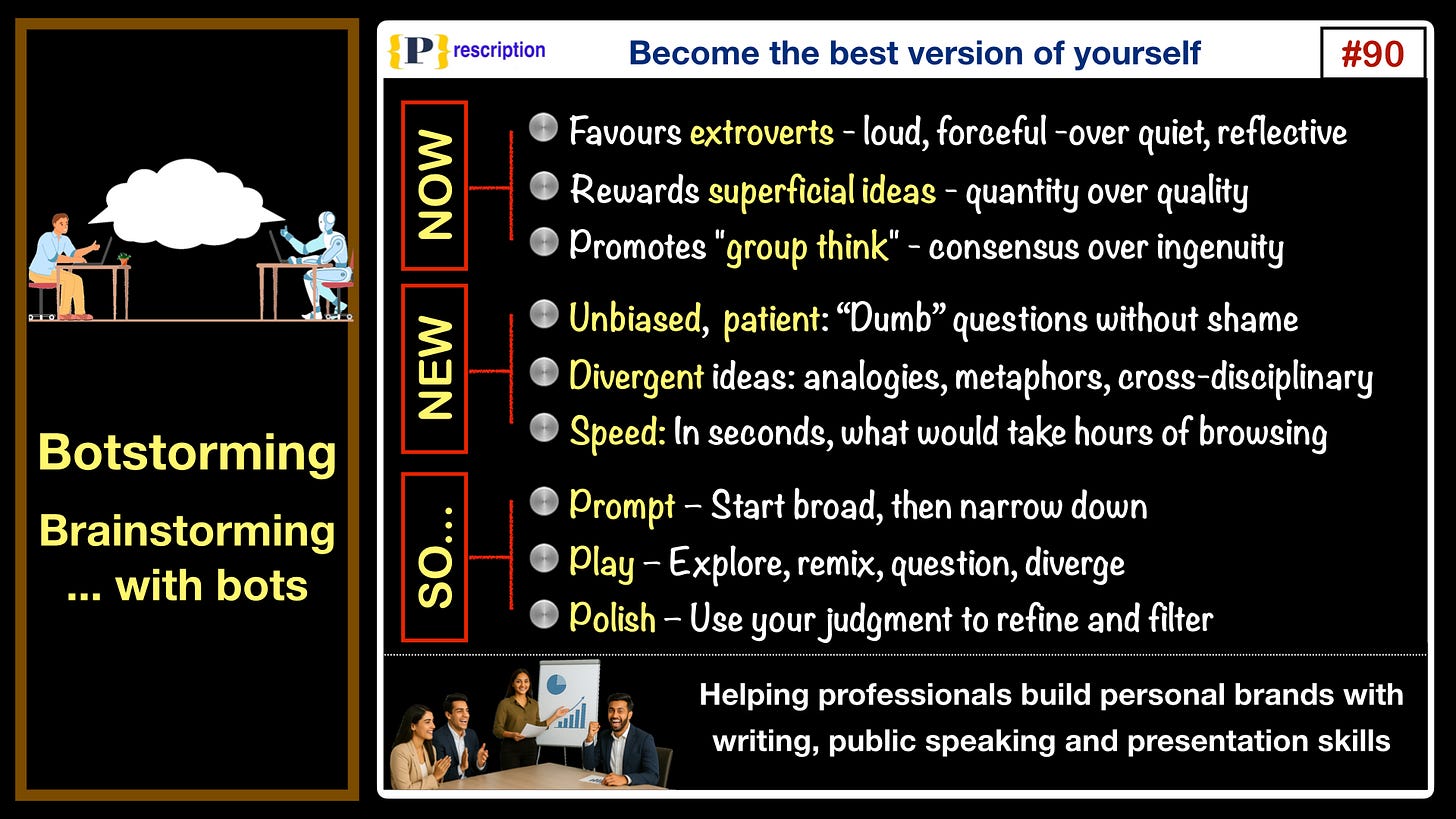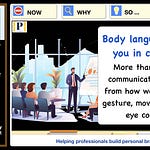Here’s the meat of it, if you’d rather not watch.
For those of you who want more:
What it’s like to brainstorm with a bot The New Yorker | Researchers find that AI tools like ChatGPT can act as creative collaborators rather than mere tools, helping to generate ideas such as “disentanglement” that lead to breakthroughs, though this prompts questions about originality and authorship.
Why brainstorming doesn’t work (and what to do instead) Inc | Group brainstorming often fails because of conformity, social loafing, and idea collision—but with skilled facilitation or better alternatives, teams can reclaim creative output.
Why other people wreck brainstorms (and how to stop them) Fast Company | Brainstorming sessions often devolve into groupthink due to memory and social dynamics—but understanding these pitfalls can help teams structure sessions more effectively.
Top 10 ways to brainstorm new ideas Lifehacker | A practical list of ten actionable techniques to jump‑start creative ideation in your daily life by changing contexts, habits, and strategies.
The scientific case for doodling while taking notes Quartz | Doodling during lectures may actually improve information retention, as visual scribbles trigger memory recall for the content being absorbed.
Forget brainstorming, try these ‘brainwriting’ apps Inc | Brainwriting tools offer a structured, written method for idea generation that can overcome the limitations of traditional brainstorming by including all participants and documenting ideas clearly.
Do you need to be alone to be creative? Here’s what the experts say The Next Web | Solitude plays a crucial role in creativity by allowing the unconscious mind to process and generate original insights that noisy collaboration might suppress.
9 tricks to appear smart in brainstorming meetings TechCrunch | A very funny piece that suggests that appearing smart in brainstorms often involves gravitas and optics—like posing as a leader or reframing others’ ideas—not necessarily original creativity.
Suggested picks
Worth trying
● 4 requirements for high performance Big Think+ | Achieving peak performance demands more than raw talent: knowledge (not mere awareness), honed skills, seizing opportunities, and deep motivation. These interconnected factors empower individuals to turn ambitions into reality. Key sentence: “Specifically, ... there are four requirements for high performance: knowledge, skills, opportunities, and motivation.”
● Expressing gratitude isn’t necessary, but a little appreciation may still go a long way The Conversation | Even modest expressions of thanks—such as a written “thank you” note—boost generosity: recipients donate more (about 42¢ vs 34¢) regardless of whether they’re thanked for their character or their action. The act of appreciation, not its wording, matters. Key sentence: “Exactly what is said when expressing thanks may be less important than communicating appreciation.”
Might work
● What exactly is “life”? Astrobiologists still have more questions than answers
Big Think | Defining life remains elusive as microbes like Sukunaarchaeum mirabile challenge existing criteria. Astrobiologists warn that relying solely on Earth‑centric traits could blind us to alien life’s possibilities, urging an open‑minded search beyond familiar definitions.Key sentence: “Our Earth-bound definitions of life could leave us blind to the Universe’s strangest forms.”
Hmm...
● Will AI pull the career ladder up out of reach or just change what it looks like? The Conversation \ University graduates now face career uncertainty as AI threatens routine entry‑level roles once vital for training and progression. Whether AI will eliminate or reshape these roles remains unclear—but collective effort from students, educators, employers, and policymakers is essential. Key sentence: “At this stage, it’s still up for debate whether AI will lead to such a mass wipe-out of graduate roles, or just change what these jobs look like.”
● What our shelves of unread books teach us about ourselves Big Think | Book collectors often feel guilt over unread volumes, yet Nassim Nicholas Taleb’s concept of the “antilibrary” frames these unread books not as intellectual failings but as reminders of what we don’t know—fostering humility and curiosity. Key sentence: “According to statistician Nassim Nicholas Taleb, these unread volumes represent what he calls an ‘antilibrary,’ and he believes our antilibraries aren’t signs of intellectual failings.”
{P}rescription is free, but if you would like to show appreciation, you can make a donation at a very worthwhile cause for education of underprivileged children at diyaghar.org







